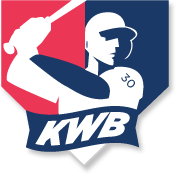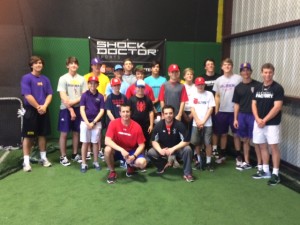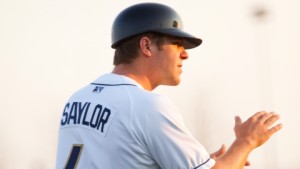 A FORMER HEAD COACH AT MULTIPLE PRIVATE HIGH SCHOOLS in the Boston area, Mike Schell has experienced what high school baseball is like for the “haves.” He also spent time working with kids in poorer sections of the city and knows the challenges faced by those coaches and athletes. Now in his first year as Director of College Counseling at Catholic Memorial High School in West Roxbury, Mass., Schell is doing what he can to provide players from lower-income areas the same opportunities to play college baseball as their more affluent peers.
A FORMER HEAD COACH AT MULTIPLE PRIVATE HIGH SCHOOLS in the Boston area, Mike Schell has experienced what high school baseball is like for the “haves.” He also spent time working with kids in poorer sections of the city and knows the challenges faced by those coaches and athletes. Now in his first year as Director of College Counseling at Catholic Memorial High School in West Roxbury, Mass., Schell is doing what he can to provide players from lower-income areas the same opportunities to play college baseball as their more affluent peers.
Schell is Founder and Executive Director of the Cannonball Foundation, which strives to create higher education opportunities for high school players regardless of their economic situation and provides leadership training for both the athletes and their coaches. Named after William “Cannonball” Jackman, a popular Negro League pitcher who played in Boston and lived there after his career ended, the foundation uses a network of college admissions experts and baseball coaches to help players from city schools reach the next level.
“As a head coach and admissions counselor at two private schools, I noticed I wasn’t seeing many economically challenged players getting opportunities to play at the college level,” says Schell. “During my time in inner-city Boston, I saw that playing opportunities were diminished for them because of district budget cuts, and a lot of families were having trouble meeting the costs of playing in showcases. I also met a lot of parents who weren’t receiving honest recruiting information from summer league coaches, and as a result their sons didn’t get the level of education and mentorship they should.
“It upset me that because these kids didn’t have means to afford the new pay-to-play model, they were losing valuable access to coaches who could help them reach the college level,” he adds. “And as a result, they weren’t going to learn all the crucial lessons the game can teach, such as self-awareness, mindfulness, leadership, and overcoming failure.”
The Cannonball Foundation holds a series of events to help its athletes. These include college preparatory and informational workshops; numerous indoor workout sessions during winter; an affordable showcase event that invites players of all economic backgrounds to work with and learn from its network of college coaches and admissions experts; and the Cannonball Scholar program, a financial aid program that provides mentoring, academic
counseling, and athletic and life skills coaching to recipients.
The Foundation also offers resources to high school coaches. “The only way we can create systemic change is to get to the coaches who are in the trenches,” Schell says. “I’m hoping that every coach we help will go on to impact at least 10 kids who will utilize our resources and programs.”
Schell also says he’s been bothered by the decreased influence of high school coaches in the recruiting process and athlete development model. “High school baseball coaches can speak to the heart of the athlete better than summer coaches can,” he says. “By engaging students on a daily basis in an educational setting, high school coaches help them develop the pivotal skills they’ll need the rest of their lives. I have nothing against the summer league coaches, I just think high school coaches are in the best position to help players navigate the recruiting process and teach them how to use baseball to develop leadership.”
The Cannonball Foundation’s Coaching Fellowship program provides several unique opportunities for high school coaches to learn ways to help their players reach the college level and develop as people. During the winter, there are typically three leadership seminars where program fellows come together to talk about mentoring, helping athletes through the college admissions and recruiting processes, and using baseball as a vehicle for improving life skills. Then in August, 14 coaching fellows took a three-day bus tour of four college campuses: Boston College, Tufts University, Brown University, and the College of the Holy Cross, while also meeting with up with coaches from Bates College, Ursinus College, and Dickinson College. At each stop, the high school coaches gained and shared insight with and from their college counterparts and the schools’ admissions counselors.
“We had some great conversations about the opportunities the game provides coaches to teach important lessons to their players,” Schell says. “It was really powerful to hear their passion and to see them make such a strong connection with like-minded people. I want high school coaches to know about our resources and let us put them in touch with our network of coaches so they can improve as teachers and coaches and better prepare their players for the college admissions and recruiting process.”


